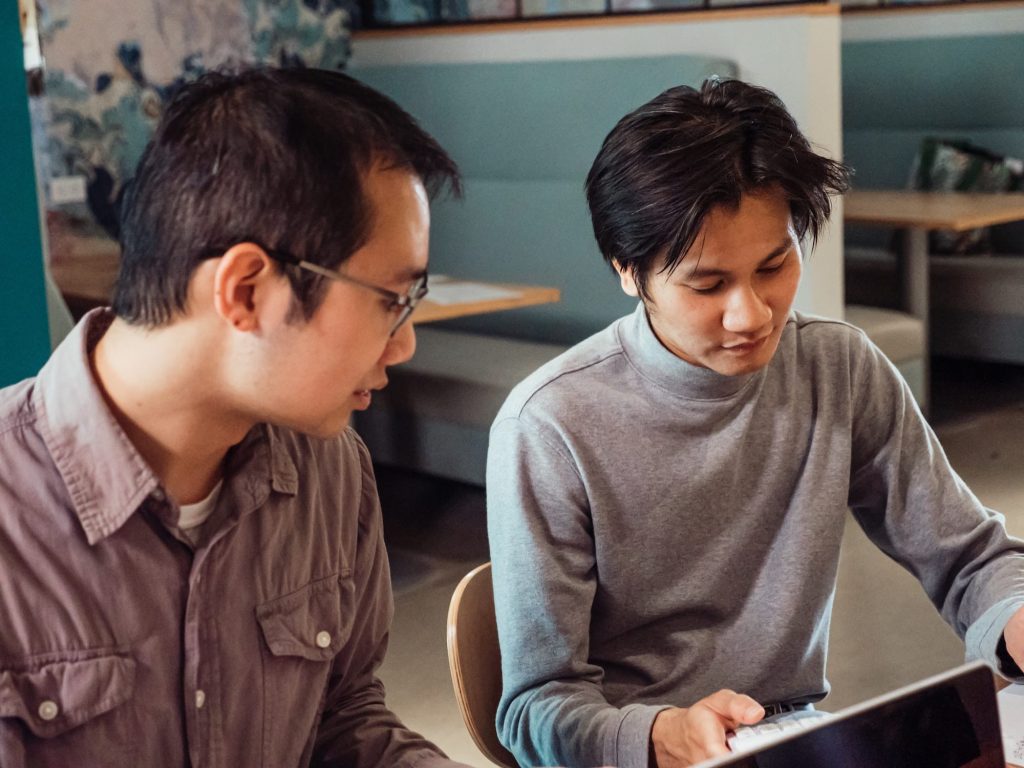A workplace investigator must constantly work towards developing their investigation skills to ensure that they are efficient and effective in their role. The workplace environment is constantly evolving, with new and complex cases emerging every day. To keep up with these changes, a workplace investigator must incorporate new tactics and strategies to ensure that they conduct thorough investigations that are both factual and unbiased.
Moreover, developing investigation skills helps a workplace investigator to stay up-to-date with the latest legal and compliance requirements. As laws and regulations change, it is essential that investigators are equipped with the necessary knowledge to conduct investigations that align with these legal standards.
Improving investigation skills is beneficial in building a strong reputation for a workplace investigator. If an investigator conducts sloppy or inadequate investigations, it can lead to legal or financial troubles for the organisation they represent. This can also tarnish the investigator’s reputation, making it challenging for them to secure future cases. In a recent survey conducted for a government body, it was revealed that most people were not happy with the way investigations were handled. This shows a lack of professional investigation skills and the need for further development that could lead to a better service.
How to improve your investigation skills
Improving investigation skills requires time, commitment and consistency. Individuals will need to practice what they learn to ensure that they fully understand it and know how to adjust and adapt their knowledge to different scenarios. The key area for improvement usually are:
- Learning to look solely at facts
- Weakness acknowledgement
- Communication skills
- Interview skills
- Report writing
Learning to look solely at facts
As an investigator, it is essential to have a keen eye for details and to remain objective when looking at facts. Making assumptions or emotional observations can lead to biases, which can slow down or interfere with the investigation’s progress.
One way to improve investigation skills is to practice looking at facts and gathering evidence before drawing conclusions. It is necessary to remain open-minded and consider multiple possibilities when analysing evidence. Investigating with a bias will lead to a closed-minded approach that can overlook essential clues that do not fit preconceived notions. Learning how to fight unconscious bias is really important for all investigators. It is difficult to get rid of unconscious bias as sometimes individuals do not even realise they have a bias. Investigators should reach out to experts that can help them eliminate any potential assumptions they have when looking at or talking with individuals to ensure more successful results during investigations.
Another critical skill to develop is emotional intelligence. It is easy to let emotions cloud judgement, especially when dealing with sensitive cases such as abuse or harassment. A skilled investigator should be able to recognise their emotions and learn how to control them to remain objective.
Weakness acknowledgement
Being an investigator requires many investigation skills and expertise. However, even the most experienced investigators have areas in which they can improve. One of the keys to improving one’s investigation skills is to understand and acknowledge their weaknesses.
By identifying and understanding weaknesses, an investigator can take targeted steps to address them. For example, if an investigator struggles with conducting interviews, they may benefit from additional training in effective interview techniques. If an investigator has difficulty analysing data, they may benefit from studying statistical analysis methods.
Additionally, understanding one’s weaknesses can help an investigator become more self-aware and avoid biases or blind spots. For instance, if an investigator tends to rely too heavily on certain types of evidence, they may miss crucial information that could change the course of an investigation.
There are several ways that investigators can identify their weaknesses. Conducting self-assessments and soliciting feedback from colleagues or supervisors can provide valuable insights. Additionally, seeking out continuing education opportunities or working with a mentor can help an investigator strengthen their skills in areas where they are struggling.
If you are reading this article, it might mean you are self-aware and already know what weaknesses you have. Try to think about what the indicator was that led you to seek improvement. Was it a mistake? An unsuccessful investigation? What were the steps that you took that ended up the wrong way? By asking these questions, you will hopefully have a better idea of what the root issue is and if it affects other aspects of your profession.

Communication skills
As an investigator, there are several ways you can improve your communication skills, which are crucial in conducting investigations effectively. Great communication skills not only help you to communicate with the subjects of the investigations but also with fellow investigators, legal representatives and other parties involved in the case.
One way to improve your communication skills is to be an active listener. Active listening involves paying attention to what the other person is saying and trying to understand their point of view. This not only helps to prevent misunderstandings but also to build trust and a better relationship with the other person.
Another important aspect of communication is nonverbal communication. As an investigator, you must remain aware of your nonverbal cues and those of your interviewee. Nonverbal cues such as posture, facial expressions and hand gestures can all convey a message or emotion. As such, it is vital that investigators effectively use nonverbal communication to establish the environment they want.
If they want to build a friendly environment, stern expressions or posture should be avoided. Sometimes individuals are not aware of the expressions they make. It would be wise to check how your muscles feel when talking to a stakeholder. Are they feeling tense or tight? Relaxing your jaw, eyebrows, unclenching your teeth and opening your eyes slightly more can get rid of a negative-looking expression.
It is also important to use clear language that is easily understandable, avoiding legal or technical jargon in most cases as this could create confusion. Investigators should be able to translate complex information into simple terms, making it accessible to a wider audience. When talking to someone like the employer the language should be more formal – while still explaining terms – but with employees try to simplify the language as much as possible. As professionals sometimes get carried away, it would be a good idea to get a friend who has never been in an investigation before and talk to them as you would talk to a stakeholder. See how much they understand and improve based on their feedback.
Interview skills
Interview skills are crucial for any investigator as it forms an integral aspect of their investigation process. An investigator with amazing interview skills can obtain crucial information from witnesses and suspects, leading to better and more accurate case results.
One of the best ways to improve interview skills is to improve how you build rapport with the interviewee. Establishing trust and creating a friendly environment can encourage the interviewee to open up, leading to more detailed and useful information. Additionally, investigators need to know when to step in. Interrupting or cutting off the interviewee can lead to frustration and loss of trust.
Open-ended questions are particularly effective in obtaining detailed and insightful responses from the interviewee. Open-ended questions are those that allow the respondent to elaborate rather than answering a simple yes or no. Adding more questions like that in your interviews as well as questions that do not already give away the answer, can be very beneficial.
Report writing
As an investigator, writing an effective investigation report is critical to the success of your investigation. It highlights your investigation skills and your work past experience as well. Your report not only serves as a record of your findings but it may also be used in legal processes. In order to improve your investigation report writing, there are several things that you can do.
First, be clear and concise. Avoid using passive tense, jargon, acronyms, big words and long-winded explanations. Write in a straightforward style that is easy to follow, using minimal diversions and verbal clutter. Simply state things as they are without any unnecessary embellishment.
Secondly, be detailed. This means that you need to include all relevant information such as names, dates, times, locations, specific quotes and any other relevant facts in the report. Do not leave anything out that could be important in the future and be sure to double-check your facts before including them in your report.
Thirdly, be thorough. Take the time to review your investigation and be sure to cover every detail. Even small details could be helpful in the future, so take notice of everything. Ask questions, dig deeper and be as comprehensive as possible.
Fourthly, be inclusive of all evidence. If you collected physical evidence, be sure to include it in your report, along with any supporting documentation. This will help the reader to understand the findings of your investigation and make it easier for them to follow along.
Finally, review it. Your report should be free of grammatical mistakes, syntax issues, formatting issues, misspellings and anything else that may call into question the quality of your report. Ensure that your writing is easy to understand, with high-quality information that adds depth and meaning to your findings.
Please note
The best investigators always look for ways to improve their investigation skills. Preparation is a key aspect of improving interview skills. Before diving into the interview, the investigator must prepare thoroughly by researching the case, gathering relevant documents and evidence and carefully formulating questions. This preparation ensures that the investigator is well-equipped and knowledgeable about the case, leading to more informed decisions and more detailed answers.
Our job at Polonious is to make the investigation process easier for the investigators. We offer easy integration with many software and a secure place to store evidence, files and relevant documents. Our clients benefit from lower administrative time (up to 38%) and lower administrative time allocated to the process. If you want a more productive investigation, request a demo!
Let's Get Started
Interested in learning more about how Polonious can help?
Get a free consultation or demo with one of our experts
Eleftheria Papadopoulou
Eleftheria has completed a Bachelor's of Business with a major in Marketing at the University of Technology Sydney. As part of her undergraduate studies she also obtained a Diploma in Languages with a major in Japanese. Following her graduation she has been working as a Marketing Coordinator and Content and Social Media Specialist.
Eleftheria is currently finishing her Master in Digital Marketing.




